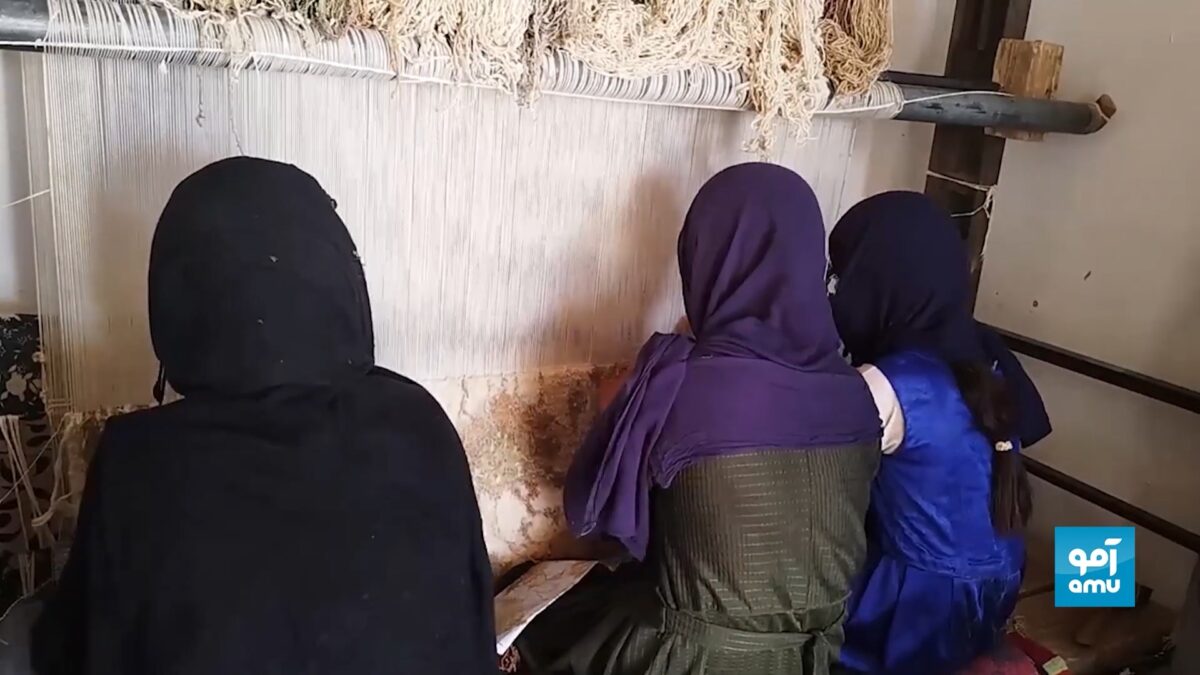Many girls have resorted to carpet weaving as an alternative means of making a livelihood in northern Baghlan province of Afghanistan as schools remain closed to girls.
The limitations on education have forced these young women to engage in laborious carpet weaving, despite the meager income it provides.
Soraiya, one of the girls affected by the closure of schools, has taken up carpet weaving to fill the educational void.
She laments the scarcity of raw materials necessary for the craft, highlighting the challenges faced by carpet weavers in Baghlan.
“They (girls) are forced to engage in carpet weaving. Even we cannot make enough money by weaving this carpet,” Soraiya added.
The carpet weavers in Baghlan have also raised their voices over the lack of markets for their products, urging the Taliban to assist in growing the carpet industry.
Meanwhile, the head of the carpet weavers’ association Mohammad Aref Ghulami said that the lack of a suitable market for carpets and the limited availability of raw material production companies in Baghlan, are the main challenges that carpet weavers face in the province which further exacerbates their hardship.
“Five hundred families are engaged in carpet and 150 others in rug weaving. Their problems are the lack of markets and marketing and the government must invite companies to invest in the carpet industry,” Ghulami added.
Officials from the Taliban’s information and culture department for Baghlan said that carpet producers used to transport woven carpets to neighboring Pakistan for processing.
He added that following the Taliban’s takeover, this practice has been stopped and the processing of carpets now takes place in Kabul.
The ancient and valuable industry of carpet weaving holds significance in Afghanistan, as it requires minimal investment while providing economic opportunities.
With unemployment and economic difficulties plaguing many in Baghlan province, numerous individuals have turned to carpet weaving as a means of survival.





